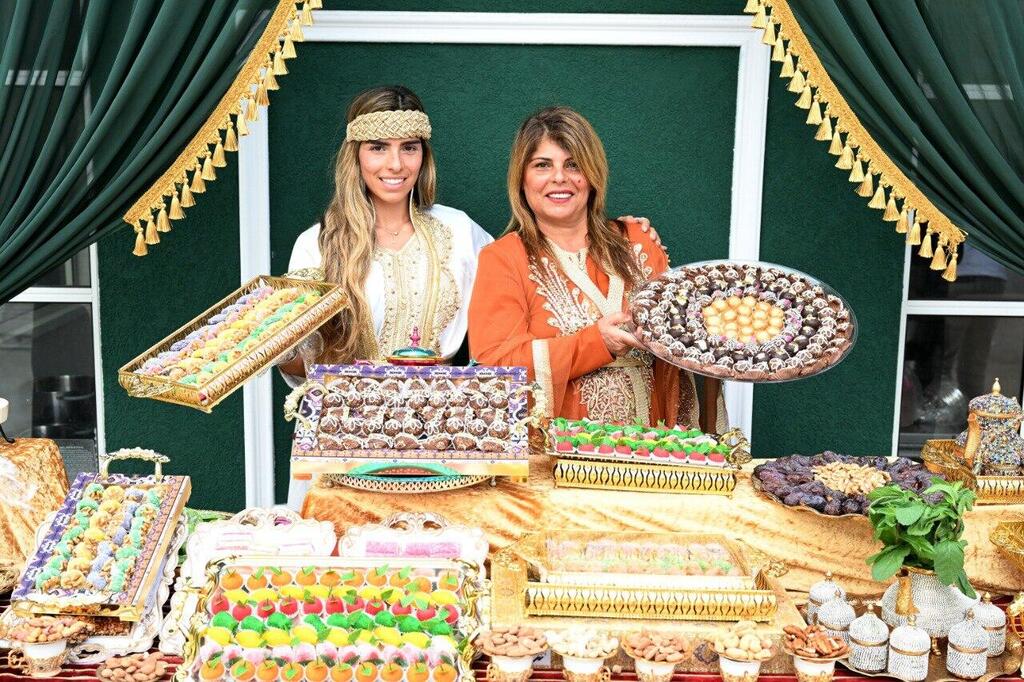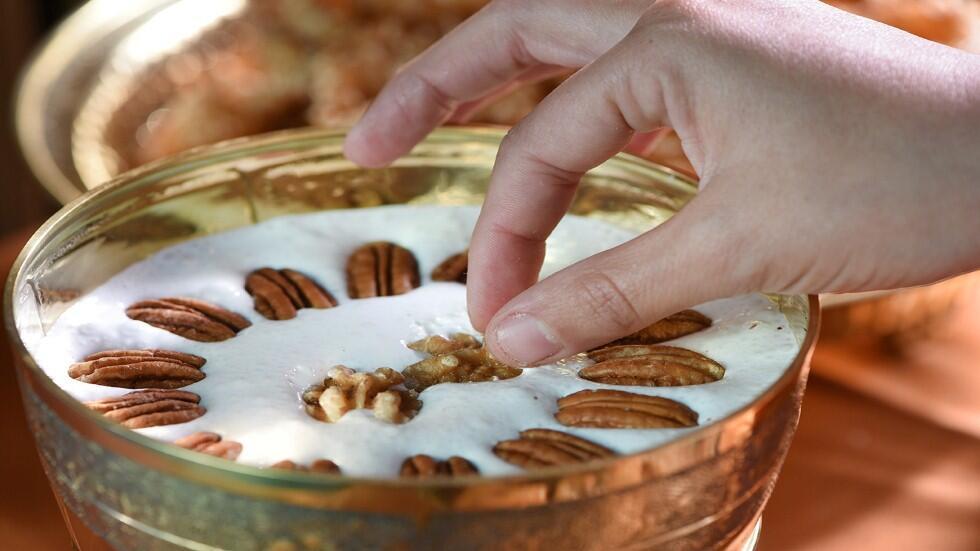Getting your Trinity Audio player ready...
“White tablecloth, adorned with greens and atop it plates, bowls, and drink bottles, all arranged tastefully. There is a jug of sour milk, a large bowl filled with flour, with bags of green beans in it, and a deep dish with fresh fish... And also plates with various sweet delights, honey and fruit such as dates, almonds, nuts... Not lacking also are bottles of wine and beer,” so described Prof. Haim Ze'ev Hirschberg a Mimouna party in the city of Fez, Morocco, which he attended in the early 1950s.
Related stories:
Hirschberg's 1957 description reveals a familial and communal joy that was almost unknown in Israeli society. Now, sixty-three years after the publication of his book on the Mimouna holiday, which originated from the Moroccan Jewish community and spread to other North African communities, the celebrations have become an inseparable part of the Israeli calendar, especially the Passover holiday. But what do we know about it?
There is evidence of a special celebration described by Rabbi Nissim, who lived in Kairouan, Tunisia in the 11th century. The term "Mimouna" was first mentioned, according to Prof. A. Bashan, in the 18th century, and written evidence of its existence dates back to the mid-19th century, about 150 years ago or more
From hudna to Lady Mimouna
The origin of the name Mimouna, which takes place this year on the evening after the end of Passover, has been extensively pondered by researchers, rabbis, and writers. According to researcher Yitzhak Einhorn, the origin of Mimouna is in a reconciliation feast held in honor of Mimoun, who was "greater than the demon kings."
Hirschberg cites Rabbi Yosef ben Na'im, who explains that Mimouna is derived from the Hebrew word for believers, ma’aminim. And what do these believers exactly believe? They believe that just as salvation came in the Hebrew month of Nisan (during Passover), so too salvation will be delivered again during the month of Nisan.
Another explanation for the origin of the name is rooted in tradition. On the 22nd of Nisan, the day after Passover, Rabbi Mimoun (the father of Maimonides, or the Rambam) passed away, and Mimouna became a substitute for Yom Hillula (yahrzeit, the anniversary of a death) which is forbidden in Nisan.
Another explanation for the origin of the Mimouna is the Hebrew word "mammon" (wealth): the children of Israel left Egypt and did not have time to count their spoils, so they wishTirbahu v'tis'adu (may you prosper and succeed).
If that's not enough, there are those who found a mention of a "Lady Mimouna", whose gravesite near Pez served as a pilgrimage site. Another explanation is rooted in the meaning of the word "Mimoun" in Arabic, which means blessing and congratulations. Those who succeed in business are called "mol l'mimoun" (a person of good fortune).
However, all these do not explain the large celebration around the day in which hundreds of thousands participate. The Mishnah states that the world is judged in four periods, and during Passover, it is judged for its crop yield. Hence, the origin of bringing wheat to the Mimouna celebration.
The holiday that broke all boundaries
The core of Mimouna for many Israelis is the mofletta, a pancake-like treat. However, every community used to have its own unique customs. While some used to eat chametz on the night of Mimouna, others abstained and continued with Passover foods, sweets, and fruits, which symbolize a bountiful year.
Additionally, it is customary for guests not to linger at the celebrant's but rather enjoy the food and continue on to the next Mimouna party.
Over the past two decades, Mimouna has transformed into a national festival that has quickly gained widespread popularity, including among many Ashkenazi Jews, adopted faster than other holidays such as Hanukkah and Purim, which only became canonized hundreds of years after their establishment.
When Jews from different parts of the world immigrated to Israel, many of the customs unique to each community were lost. The brutal "melting pot" process destroyed the unique traditions of many communal cultures, and subsequent generations of Israeli-born or raised Jews did not continue the legacy of their ancestors.
However, there has been a shift from a "melting pot" to a "cultural holism" approach, which has led to recognition and support for preserving the traditions of various communities, and efforts to cultivate the tradition that celebrates each unique Jewish heritage.
Although the exact origins of Mimouna are unknown, the holiday is a rich and diverse tradition that is passed down from generation to generation and from community to community. It contributes to the unique character of Israeli society, whether or not politicians are involved. The more we cultivate communal and cultural traditions that have accompanied the Jewish people for centuries, the more fulfilling and enriched our lives become.




